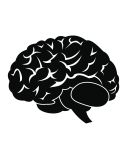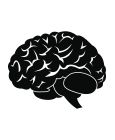ADHD
The Adjustment of Adoptees
Studying the behavior and adjustment of adopted children.
Posted March 31, 2015 Reviewed by Devon Frye
By Patrick M. Burns
I was adopted when I was just a few months old by two loving parents. My mother recalls me squeezing her finger as I lay in my crib, looking up at her with a big smile on my face, as if to say “if you take me, I’ll take you.” When I reached my teens, however, and became a substance abuser, the smiles faded and my parents may have wondered whether the adoption agency had a return policy.
I am 34 years old now, and I am a therapeutic and educational placement specialist in my hometown Ithaca, New York. I assist many adoptive families—and find myself drawing on my own experiences as well as an avalanche of research data to address the questions my clients ask about the experiences of adopted children.
The most frequently asked questions, of course, involve the emotional, behavioral, and academic adjustment of adoptees.
There is no simple one-size-fits-all answer to such questions. It is clear, however, that when compared to the alternatives—placement in an institution, foster care, or life in a household in which the biological parent(s) cannot (or will not) adequately address the child’s material and emotional needs—adoption is a valuable and effective social policy. That said, scores of studies have found significantly more pathological symptoms among adoptees than non-adoptees, many of them indicating, implicitly or explicitly, that the absence of blood relations has significantly impaired the adoptee.
Comprehensive reviews in the 1990s, for example, found that adoptees manifested more attachment-related problems, school-related behavioral issues, lower academic achievement, a greater likelihood to run away from home, and less desire to go to college than non-adoptees. Another study showed that between 5 and 17 percent of adopted adolescents received counseling and/or spent time in mental health clinics and residential care facilities, about 1 1/2 to 2 1/2 times the rate for their non-adopted peers. The Department of Health and Human Services reports that 9 percent of adoptees and 4 percent of non-adoptees have been diagnosed with depression; 26 percent of adoptees and 10 percent of non-adoptees with Attention Deficit Disorder and Attention Deficit Hyperactivity Disorder; 15 percent of adoptees and 4 percent of non-adoptees with behavior and conduct problems; and 14 percent of adoptees and 9 percent of non-adoptees with social behavior problems.
Compared to non-adopted persons, adoptees also have higher rates of psychiatric disorders, including substance abuse. A recent study found that lifetime prevalence rates of illicit substance use disorder (SUDs) are about 43 percent higher among adoptees than non-adoptees: 41 percent for alcohol, compared to 27.5 percent among non-adoptees; 25.4 percent for adoptees in contrast to 16.1 percent for non-adoptees for nicotine. For illicit SUDs, the rate is 2.9 percent for opioids and 13.2 percent for cannabis for adoptees and 1.3 percent for opioids and 7.6 percent for cannabis for non-adoptees.
Noting the “clear evidence” that some adoptees feel rejected or abandoned by birth parents, another researcher concludes that adoptive status predicted perceived risk in intimacy and reports of family and social loneliness. Adoptees scored higher than other groups on avoidance, anxiety, and fear—key measures of adult attachment.
It is very important to emphasize, however, that virtually all studies confirm that the vast majority of adoptees are well within the normal range of behavioral and emotional adjustment. As one study puts it, far more often than not, the adaptations of adoptees are “much like those of adolescents in intact bio-parent families, with little evidence of problem behaviors.”
Researchers and clinicians have also identified other explanations for the “problematic” behavior of adoptees. Adoptees—it is important to note—are adopted at all ages and stages of life; some adoptees have suffered from neglect, abuse, and/or malnutrition. There is also considerable evidence that adoptees do not appear more frequently in therapeutic settings “purely because they are more troubled.” Adoptive parents—perhaps because they tend to be better educated and have greater financial resources than non-adoptive parents—appear to exhibit a “referral bias”: they are more likely to seek psychological help, to do so more quickly and for less serious problems. Their willingness to use therapeutic resources, in many instances, should be “perceived as a strength rather than a defect.” It is worth noting, moreover, that the expectations of adopted children among teachers, therapists, and others, and the social stigma attached to adoption in a society that typically defines kinship in genetic terms may also result in more negative evaluations of their conduct.
The research leads to three fundamental conclusions, all of them valid.
- Adoptees are at somewhat higher risk for “problem behaviors.”
- The vast majority of adoptees are much like adolescents in intact bio families with little evidence of problem behaviors.
- Adoptees who exhibit problem behaviors often successfully address them and go on to live productive and happy lives.
My own experience helps explain these seemingly contradictory findings. Like many adoptees, I have fit all three of the categories at one time or another. Two well-educated parents adopted me, a father with a Ph.D. and a mother with an M.F.A. They had the inclination and the resources to find me therapy at a young age and hire a consultant to identify a wilderness program and a boarding school for me to attend. In many ways, I adjusted quite well. I was sociable, good at sports, and some people even found me charming. Simultaneously, I was a mess. Like many teenagers (adopted and not adopted), I lacked self-esteem, I was angry, I was in constant combat with my parents, I was using drugs, and I was failing in school.

For quite some time now, I have exhibited little evidence of “problem behaviors.” I am sober, have completed a B.A. and an M.A., have found fulfilling work, own a house, am in a meaningful relationship, and enjoy a special connection with my mom and dad, whose steadfast manifestation of love without reservations, but with expectations (along with their referral bias) sustained—and continue to sustain—me.
Patrick M. Burns has a B.A. in American Studies and an M.A. in Human Development from Cornell University and is a therapeutic and educational placement specialist at the consulting firm, ECS.




